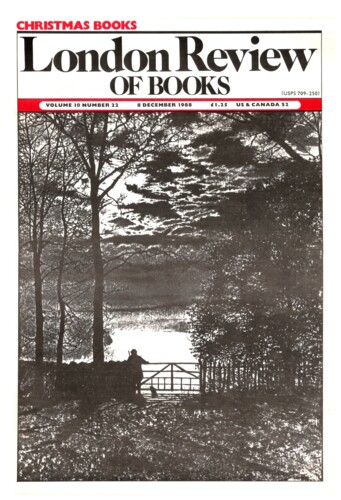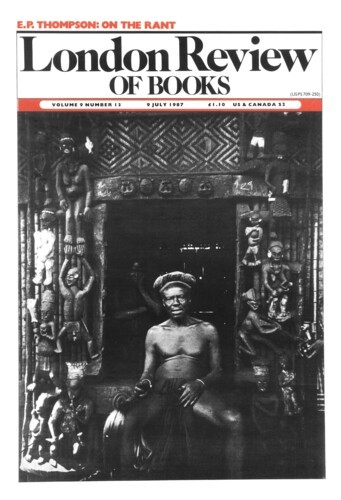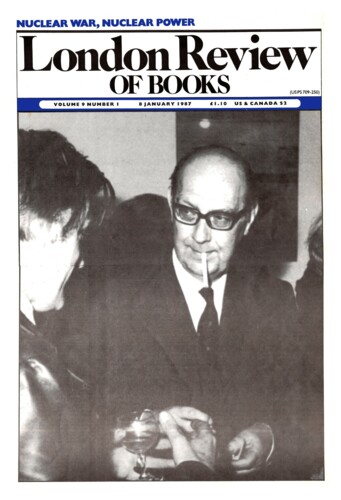E.P. Thompson
E.P. Thompson’s most influential book is The Making of the English Working Class, published in 1963 when he was a lecturer in the extramural department at Leeds University. His other books include The Poverty of Theory and Other Essays, Time, Work-Discipline and Industrial Capitalism, Whigs and Hunters: The Origin of the Black Act and Witness against the Beast: William Blake and the Moral Law, which was published just after his death in 1993. In the late 1950s he was co-editor of the New Reasoner, which joined with the Universities and Left Review to form New Left Review in 1960. He was also a founder member of CND.
On the rant
9 July 1987
Seconds Away
8 January 1987
Pieces about E.P. Thompson in the LRB
Convenient Death of a Hero
Arnold Rattenbury, 8 May 1997
E.P. Thompson, historian and peacemaker, known as Edward to his friends, died at his home near Worcester in 1993. Four years on, Beyond the Frontier is a volume of material set aside far earlier....
Bankura’s Englishman
Amit Chaudhuri, 23 September 1993
Two Englishmen spring to mind in connection with Tagore: C.F. Andrews and W.W. Pearson. Andrews, with his further association with Gandhi, looms now and then in Indian history books and national...
John Homer’s Odyssey
Claude Rawson, 9 January 1992
Edward Thompson’s Customs in Common is described as a ‘companion volume’ to his The Making of the English Working Class, and rises to the occasion. It has the wide range of...
Final Jam
Michael Irwin, 2 June 1988
It isn’t easy to describe this Protean work, but the 18th-century flavour of the title page offers a useful preliminary hint. Essentially the story is an inversion of Gulliver’s...
Total Solutions
Alan Brinkley, 18 July 1985
About ten years ago, I heard Edward Thompson give a public lecture at Harvard University. He was not then an internationally renowned spokesman for the peace movement: there was at that point no...
The End of the Future
Jeff McMahan, 1 July 1982
The Reagan Administration’s bellicose posturing and its apparent relish for the Cold War have finally succeeded in rousing Americans to an awareness of the danger of nuclear war. But, while...
Counting weapons
Rudolf Peierls, 5 March 1981
Nuclear weapons, and the knowledge of the horrors they are capable of producing, have been with us for 35 years. We might be tempted to let familiarity blunt the impact of these facts on our...
English Marxists in dispute
Roy Porter, 17 July 1980
The Englishness of English historians lies in their eclecticism. Few would admit to being unswerving Marxists, Freudians, Structuralists, Cliometricians, Namierites, or even Whigs. Most believe...
Read anywhere with the London Review of Books app, available now from the App Store for Apple devices, Google Play for Android devices and Amazon for your Kindle Fire.
Sign up to our newsletter
For highlights from the latest issue, our archive and the blog, as well as news, events and exclusive promotions.



